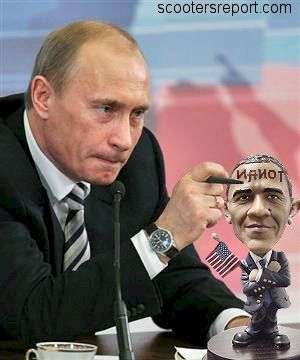 By Andrew C McCarthy ~
By Andrew C McCarthy ~
I appreciate Rich’s mention of my column on the homepage about why it is vital that legitimate limits, as provided by federal regulation, be imposed on Robert Mueller’s special counsel investigation. I want to elaborate on this a bit more in the context of what Rich’s post addresses: the leak indicating that Mueller’s investigation is already straying significantly from the matter of Trump campaign collusion with Russia – the evidently unsupported narrative that was supposed to be Mueller’s focus.
Rich notes the Washington Post’s report that “officials” say that Mueller’s “investigators have also been looking for any evidence of possible financial crimes among Trump’s associates.” The New York Times‘s version of the leak is more enlightening, elucidating how much of a fishing expedition the financial angle seems to be:
A former senior official said Mr. Mueller’s investigation was looking at money laundering by Trump associates. The suspicion is that any cooperation with Russian officials would most likely have been in exchange for some kind of financial payoff, and that there would have been an effort to hide the payments, probably by routing them through offshore banking centers.
Allow me to translate: The investigators have no evidence of Trump campaign coordination with Russia and, if it is possible, they have even less cause to believe there was a bribe (for the coordination that did not happen), and less still to believe the bribe (that there’s no reason to believe happened) was conveyed in a deceptive manner that amounted to a felony money-laundering violation.
 Get it? In the absence of an evidentiary predicate for a criminal investigation, a bunch of smart lawyers are theorizing that if there had been some kind of collusion, there might have been a money trail. On that pretext, they have moved on to a new crime they speculate, but have no evidence, may have occurred. This enables them to start poking around people’s banking records, business ledgers, tax returns and the like.
Get it? In the absence of an evidentiary predicate for a criminal investigation, a bunch of smart lawyers are theorizing that if there had been some kind of collusion, there might have been a money trail. On that pretext, they have moved on to a new crime they speculate, but have no evidence, may have occurred. This enables them to start poking around people’s banking records, business ledgers, tax returns and the like.
Inevitably, it will be forgotten that there was no evidence of the collusion, of the bribery for the collusion, or of the money laundering for the bribery for the collusion – i.e., no evidence supporting the rationale for the fishing expedition. Instead, Mueller’s team will be on to theorizing financial irregularities that have utterly no connection to Russia, the election, collusion, or anything that the investigation was supposed to be about in the first place.
This is a huge problem with defining Mueller’s jurisdiction in terms of the counterintelligence investigation, as deputy attorney general Rod Rosenstein did, in violation of the governing regulation.
A counterintelligence investigation is not a criminal investigation. The latter focuses on specified factual transactions in which there is reasonable suspicion that a specified crime has been committed. A counterintelligence investigation, in stark contrast, is an information-gathering exercise. There are no limiting parameters to an information-gathering exercise – intelligence agents always want to know more. Unlike criminal investigations, in which investigators need to prove exactly what happened under rules that limit the kinds of evidence that may be considered, intelligence is all about probabilities. It is a predictive discipline in which all manner of information is gathered since you never know what morsel of triple-hearsay (that would never be admissible in a criminal trial) may help you figure something out down the road.
The regulation Rosenstein was supposed to apply in appointing a special counsel called for him to “determine that a criminal investigation of a person or matter is warranted.” He did not do that. As a rationale for appointing a special counsel, he cited the investigation then-FBI director James Comey had described in his March 20 congressional testimony. Comey said the investigation was a counterintelligence probe – not a criminal investigation. He described it as a counterintelligence investigation focused on Russia’s interference in the 2016 election, including any ties between Trump associates and Putin’s regime, as well as any “coordination” between the Trump campaign and Russia’s interference efforts.
None of what Comey described – other than the hacking that has been attributed to the Russian efforts – is necessarily, or even probably, criminal. Having ties to Russians is not a crime, and “coordination” with Russians is not a crime unless it rises to the level of a criminal conspiracy to violate a federal criminal statute.
In sum, Rosenstein has failed to describe, in a “specific factual statement,” the basis for the criminal investigation that purportedly triggered the need to appoint a special counsel – as the regulations require him to do. That description is supposed to state the parameters of the special counsel’s jurisdiction so that we don’t end up with a fishing expedition.
Voila! We already have a fishing expedition.
A version of this piece also appeared on National Review Online.
FamilySecurityMatters.org Contributor Andrew C. McCarthy is a senior fellow at the National Review Institute, author of Willful Blindness: A Memoir of the Jihad and blogs at National Review Online’s The Corner.
Read more excellent articles from Family Security Matters . http://www.familysecuritymatters.org/




Grumpy Old Man
Mon 06/19/2017
Reminds me of dogs chasing their tails.
(I hope they catch it and bite down hard. Ouch!)
LikeLike
Brittius
Mon 06/19/2017
Reblogged this on Brittius and commented:
If it’s any consolation, Genesis 1:21, God created the bird, first.
LikeLiked by 1 person
Grumpy Old Man
Mon 06/19/2017
Ha ha, So true Brittius.
LikeLiked by 1 person